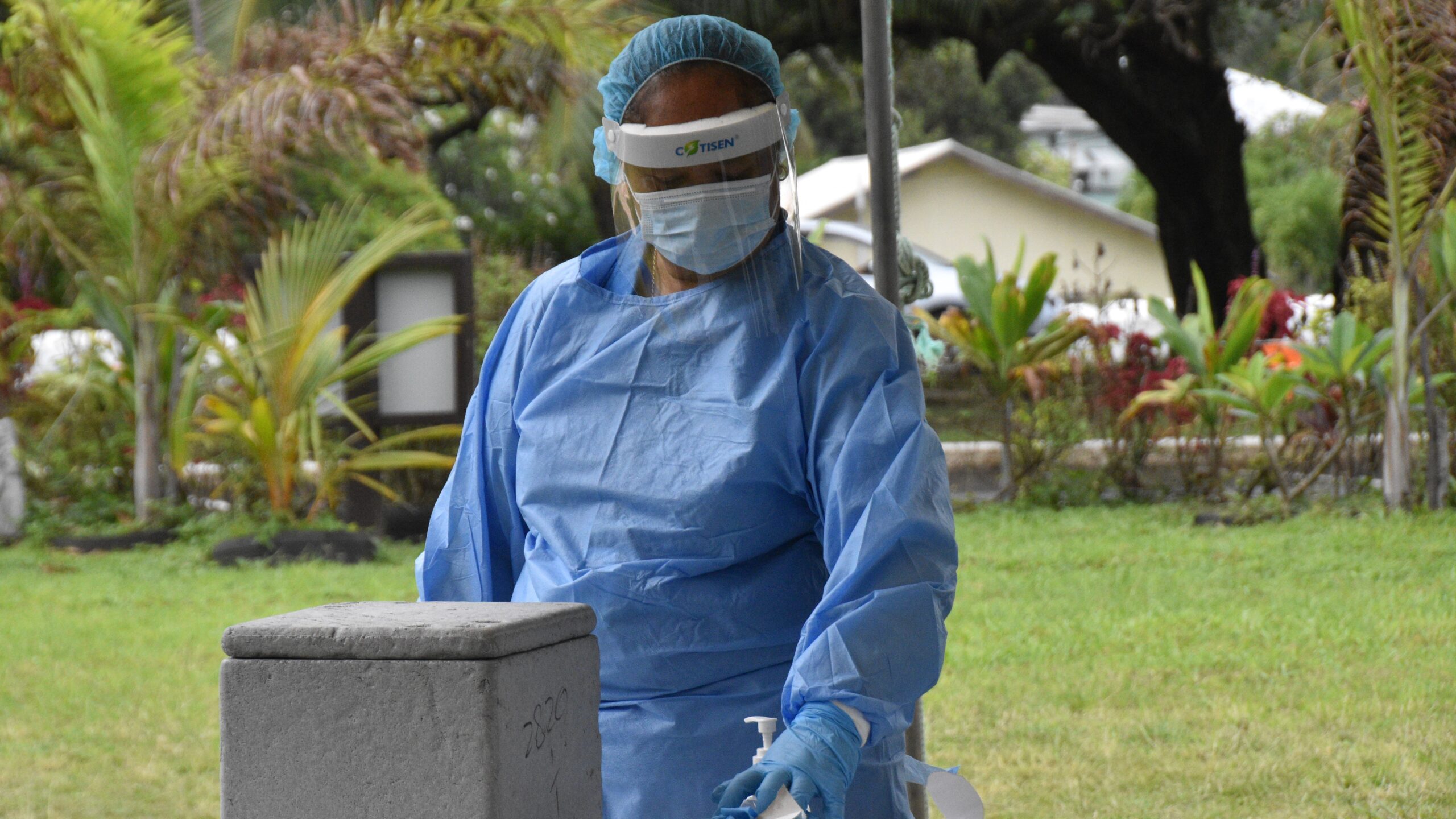Health workers ‘under pressure’
Friday 25 March 2022 | Written by CI News Staff | Published in Health, National

A Ministry of Health worker at the Constitution Park Covid-19 testing facility in March. Photo: COOK ISLANDS NEWS/22030313
Cook Islands hospital workers are under pressure due to the increasing number of staff affected by Covid-19.
Figures provided by Te Marae Ora show that there were 98 reported cases of Covid-19 on Wednesday, bringing the total up 1158. Of those cases, 484 are still active, while 674 have recovered.
It is slightly down on the peaks of Monday and Tuesday, where 113 and 112 cases were recorded respectively. The number of cases on Aitutaki remains at five.
When asked about the rising numbers, Secretary of Health Bob Williams said they were “expected as the transmission is well established on Rarotonga”.
Responding to zero hospitalisations in the Cook Islands because of Covid-19, Williams said “we have prepared our people well by vaccination and moving the focus on our vulnerable people for their protection is key to avoid hospitalisations”.
“The hospital remains ready with contingency plans now being reviewed almost daily due workers getting infected or being isolated,” Williams said.
“The hospital however is still managing and other contingency planning for workforce surge support is also being escalated for considerations.”
Williams could not give numbers of how many hospital workers had been affected by Covid-19, other than to say it was “a few”.
He advised people to continue to observe the public health measures and comply with the isolation requirements, also for family members to provide the protection to any vulnerable family members in their household.
Williams said essential services and business were being impacted by workers being isolated, and a process is being worked through for those workers who can safely return to work if required.
“This is also impacting on the timely delivery of welfare packs including the services at the community clinics,” he said.
Last week, Prime Minister Mark Brown indicated that household contacts might be able to work in the future by taking daily Rapid Antigen Tests (RAT) prior to going to work.
Brown said he was finding out from Te Marae Ora Ministry of Health (TMO) if it could work.
As well as the RAT before work, he said positive cases in the household would be separated from the essential worker inside the house. A household contact is someone who is living with a person with Covid-19, under the current rules they are required to isolate.
“At this stage, we’re not doing that at the moment, it will require households to stock RAT tests at home and there’s still risks that those households will be infected when they do come out,” Brown said.
“It will be certain key people that will be needed to able to get out and work.
“We’ve had a couple of households where the positive contact have stayed in for seven days and the rest of the household stayed in for seven days and none of them returned positive, all of them returned negative.
“At the moment we have discussed it but it’s not going any further than that as yet.”
Brown said the need for essential workers was “much more pressing” as more people were being infected.
The Prime Minister said he would be open to assessing which household contacts would be allowed to work on a case by case basis.
“It makes big difference for a number of small businesses to allow people to go back to work or otherwise they essentially have to close for a week and we’re seeing that already.”















































